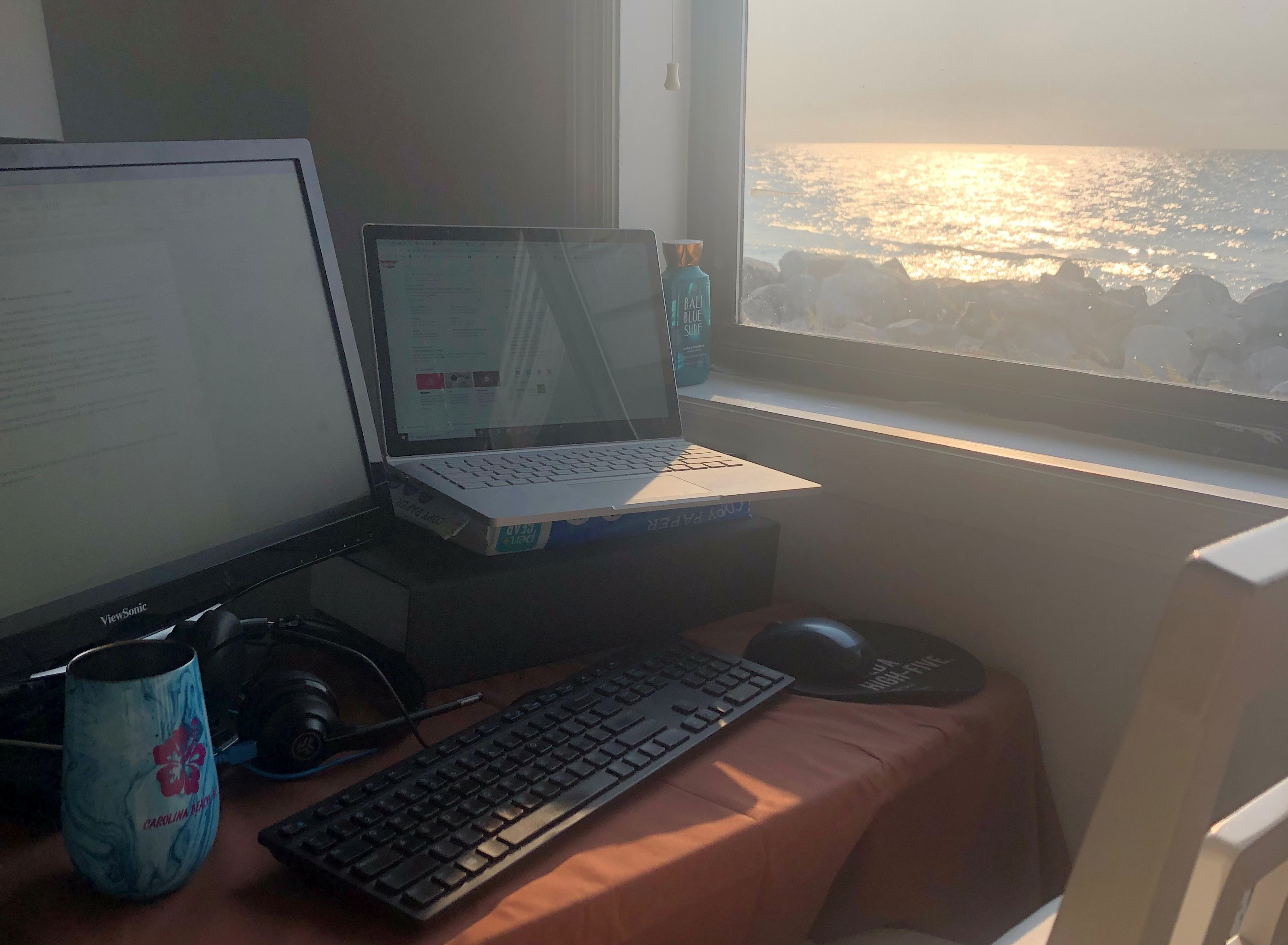Life just gets busier and busier, and when every fiber of my being says to slow down, for some reason, I keep going. I want to be a good wife and mother to my three children. I want to be a good executive team member for my colleagues at RSG. Did I also mention I'm a doctoral student? I am trying to squeeze a lot out of this little lifetime. If only I could split myself into four people—like Jamie Madrox (a.k.a. Multiple Man) from Marvel Comics.
Alas, I don’t have superpowers like one of the X-Men. Still, I do work for an amazing organization that prioritizes employee flexibility and well-being. As an employee-owned company that recently adopted a hybrid workplace model, we’re not afraid to get creative to find solutions that work for different needs.
I recently had the opportunity to test out one such creative solution and get away for two weeks. A friend had booked two different rental homes along the coast of North Carolina. Her logic was that we could work from anywhere in this new remote (or hybrid) world. So, she set out to pack up and go to the beach, have a different view, and experience new things in her off-hours.
I thought to myself, how perfect is that; with too many commitments for school and work, I couldn't take a vacation, but I could take a “workcation.” I could walk or run on the beach in the morning or during my breaks. I could go out to dinner or walk through the shops after work. A new environment, new experiences—I was inspired to give it a try!
I asked my friend if there would be room for one more; she welcomed the company and someone to share the experience and expense. So, we packed up our offices, and we hit the road.
Workcations are more doable than you might think
Some readers may be thinking, “I could never do that. The nature of my work requires me to be on site.” If you've already unsuccessfully challenged that status quo or your values are unwavering on this, I respect that, and a workcation may not work for you. Or certain family circumstances may not allow for it.
However, as an organizational development professional and leader, my perspective as an employer is that even for jobs that require in-person service, or that include production processes, a workcation benefit could still work. With a little creativity, most employers can find opportunities for an employee to stay connected and complete practical tasks for a week or two while working remotely.

With the nature of my work, I see organizations aspiring to grow but being held back. They are dealing with challenges of burnout, low morale, turnover, or poor performance. Generally, these organizations are looking to transform into a healthier, happier workplace. This is where understanding the underlying causes of these symptoms is essential. And there are many potential causes.
Some of the most common causes of dysfunction stem from leadership methods, styles, or behaviors; structural or process inefficiencies; lack of strategic and operational clarity; training and skill gaps; and—perhaps most importantly—misaligned, dishonored, or missing values. So, I am always on the hunt for culture-improving actions that companies like ours can take to demonstrate they trust and care for their employees. Allowing employees to take workcations is a perfect example of a practice grounded in trust.
Trust is key to creating a great company culture and making workcations work
My own workcation experience has reinforced how good it feels to be trusted. The companies that struggle the most are the ones that fundamentally lack trust. When leaders have the right structures, processes, educate effectively, hire for shared values, and trust their employees, engagement is higher. People work harder; they put in more hours.
My company trusts me, and I trust my colleagues. This reciprocal trust is why I was able to take a workcation. My colleagues knew I was working; they could access me during normal business hours, I was virtually present to support and talk through anything they needed, and I followed through on my commitments. I got a ton of work done, and yet I felt more relaxed than I have during the past year. We all got a better version of me as a result of this tremendous benefit.
All people fundamentally want to be trusted, cared for, and listened to. A mentor of mine would regularly say, “98% of the time, people are going to do the right thing when no one is looking. Don't run the company for the 2%, run it for the 98%.” In a world where talent can come from anywhere, companies cannot let fear or mistrust prevent us from showing care.
Leaders, look around and listen to your employees. Do you see a bunch of Jamie Madrox wannabes—people pulled in different directions by life’s demands and convinced, for whatever reason, they cannot take vacation time? If yes, then get creative and think about offering them a workcation. This flexible, smart benefit demonstrates you care for and trust your employees, which will help attract and retain your best talent.
······························
Belinda Peavey, MBA, SPHR, HCS is the Vice President of People and Culture at RSG. She is responsible for helping RSG create an inspiring workplace where employees feel connected, recognized, and respected. Belinda is also a doctoral student in organizational and leadership psychology at William James College.



